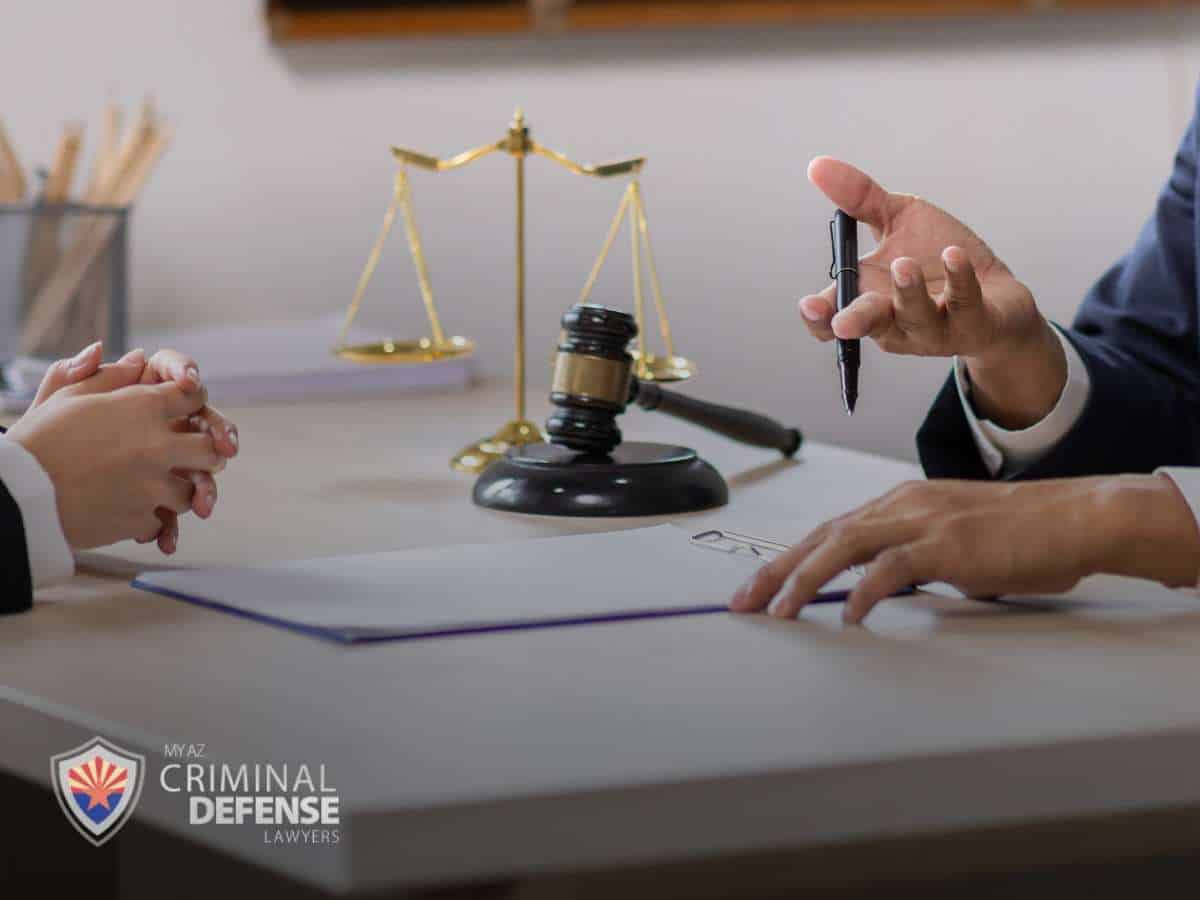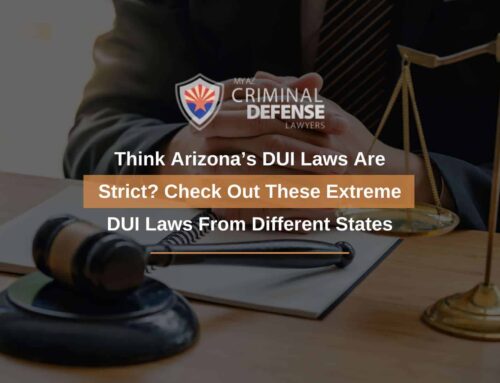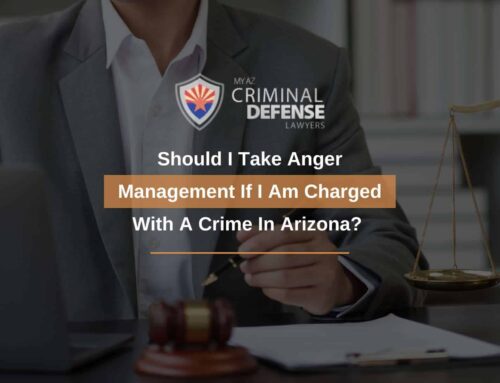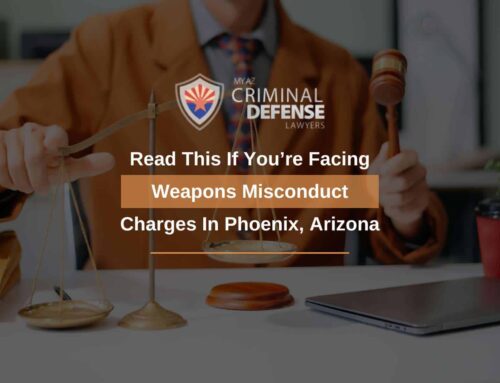Attorney-Client Privilege In Arizona Criminal Defense Cases
In this life, there are a few people you need to be able to talk to without fear of what you said being spread. That’s why there is a constitutional protection against being forced to testify against your own spouse. If you’re religious, you probably rely on confidentiality when you visit the confessional. Hopefully you exercise your constitutional right and civic duty to vote, and while whether you vote is public record, who you vote for is privileged information. You probably also share sensitive information with your doctor, knowing that they are bound to confidentiality. In the same thread, you can’t fully trust your lawyer in a legal matter unless there are some protections in place surrounding your communications. Attorney-client privilege exists to safeguard your legal communications with your criminal defense attorney if you are ever caught up in a criminal matter, which is essential to your civil rights as a whole. Depending on the facts surrounding your case, having an attorney who knows when to invoke this privilege could be crucial to your verdict. Want to discuss your case with an Arizona legal professional who is experienced in a wide array of criminal offenses? Our office offers unbeatable legal services and starts the process with a free consultation by phone. Schedule yours today by calling 480-833-8000.

What Is Attorney-Client Privilege?
Attorney-client privilege is the privilege that protects communications between a lawyer and their client. It applies when the lawyer is providing legal advice or services. It can protect oral conversations, emails, text messages, and other written forms of communication. The client has final authority with attorney-client privilege, meaning they can choose to waive the privilege, but the attorney cannot. There are several instances in which the attorney-client privilege will become relevant and should be invoked during a criminal prosecution. If the prosecution makes discovery requests for privileged information, attorney-client privilege should be invoked.
Invoking attorney-client privilege at the correct time can keep evidence out of a case that permanently affects the defendant’s chances at a not guilty verdict. Therefore, it is vital for a criminal defendant to retain an attorney who knows when and how to use it. There are also exceptions to attorney-client privilege of which both the attorney and client should be aware.
Exceptions To Attorney-Client Privilege
- The client is seeking legal advice to further a criminal act or fraud
- The client is using their attorney’s advice as a defense against criminal charges, i.e., blaming the attorney for their criminal conduct
- A third party is present to the privileged communication, unless that third party is essential to the communication, e.g., a sign language interpreter
- There is an overriding public policy interest, e.g., protecting the welfare of a child
- Any communications between the lawyer and client that are not relevant to the legal matter, e.g., business discussions
- The client revealed privileged information without taking reasonable steps to prevent the disclosure or rectify the error
- The privilege is being sought to be invoked for communications between the lawyer and an expert witness
- Disclosing the privileged information will prevent the death or serious injury of another person
Examples Of Attorney-Client Privilege Violations
Some violations of attorney-client privilege may be accidental, while others are more intentional or even malicious. Read the list below if you are struggling to think of how attorney-client privilege could affect a defendant in a criminal prosecution. In some situations, the court may find it necessary to issue protective orders to prevent privileged information from being shared during a trial.
- A criminal defendant consults with a defense attorney and admits to a minor crime but does not retain the attorney’s services. The attorney later calls the police to inform them of the prospective client’s admission.
- A criminal defendant retains a firm’s services but does not speak English as their first language. The firm retains a foreign language interpreter to provide better services, who hears the defendant confess to an offensive crime. The foreign language interpreter gossips about the case to friends and family, with the rumors eventually reaching friends and family members of the judge assigned to the case.
- A criminal defendant tells his attorney of his plans to shoplift from a major retailer, without seeking advice, which has nothing to do with the services for which the attorney was retained. The attorney calls the store to tip them off, even though the crime will not put anyone in danger.
- A criminal defendant is already held in custody, so all of their phone calls are being recorded. The prosecution’s paralegal “accidentally” listens in on the defendant’s phone call with their attorney. The prosecution later introduces that privileged information at trial.
- During a deposition, the prosecution asks the client a question whose answer is protected by attorney-client privilege. The attorney fails to object simply due to lack of knowledge about attorney-client privilege, and the client answers the question.
Required Disclosures
On the flip side of attorney-client privilege are required disclosures by the prosecution. There are certain types of information that the prosecution must disclose to the defendant, if requested. One category of this type of information is Brady material. The name for Brady material comes from the landmark Supreme Court Case Brady v. Maryland. This court ruling set forth a requirement for the prosecution to provide exculpatory evidence, or evidence suggesting the defendant’s innocence, when requested. In this case, the defendant admitted to participating in a murder, but not to committing the actual killing. The defendant requested to review all of the other defendant’s statements, but the prosecution withheld a statement admitting to the killing. The court found this to be an error worthy of a new trial.
Another type of information the prosecution is required to disclose is Jencks material. Jencks material derives from Jencks v. United States. In this case, the defendant requested to review testimony from informants to determine its admissibility in court, but the request was denied. This ruling, followed by the Jencks Act, placed a requirement on prosecutors to produce written statements made by prosecution witnesses. Failure to do so is considered a violation of the defendant’s Sixth Amendment right to confrontation.
Seeking Legal Representation To Protect All Of Your Privileges And Rights? Look No Further Than The Criminal Defense Team At My AZ Lawyers.
Protecting your attorney-client privilege is just one piece in the larger puzzle of making sure you receive a fair trial and ideally remain out from behind bars. If the prosecution were to gain access to your most private and sensitive secrets and use them against you, it will make it all the more difficult to defend your legal position. One of the skills you want your Arizona criminal defense attorney to have is the knowledge of when to invoke attorney-client privilege and other rights you have in a criminal trial. You have rights as an American that aren’t taken away just because you’ve been accused of a crime. Our experienced criminal defense team will fight tirelessly for your liberty and good name. We offer competitive rates and make retaining our firm easier by starting the process with a free consultation by phone. Get started today by calling our office at 480-833-8000.

My AZ Criminal Defense Lawyer
Mesa Location:
1731 West Baseline Rd., Suite #100
Mesa, AZ 85202
Office: (480) 448-9800
Glendale Location:
20325 N 51st Avenue Suite #134, Building 5
Glendale, AZ 85308
Office: (602) 509-0955
Tucson Location:
2 East Congress St., Suite #900-6A
Tucson, AZ 85701
Office: (520) 441-1450
Avondale Location:
12725 W. Indian School Rd., Ste E, #101
Avondale, AZ 85392
Office: (623) 499-4222







